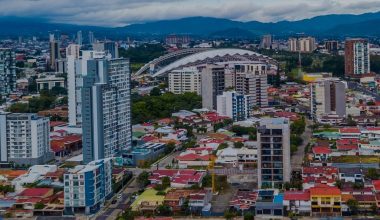Placed under the spotlight of bankruptcy proceedings, Aeromar has finally managed to release the first embargo after +800 days. The Tenth District Court in Civil Matters, Mexico City, agreed to cancel the registration of an embargo on Aeromar’s assets and brands. Judge Eduardo Leon Sandoval ordered the National Banking and Securities Commission (CNBV) to relax restraint on Aeromar’s five bank accounts.
An embargo on Aeromar’s assets and accounts was removed.
After three and a half years of assets seizure, the court has ruled a decision to release Aeromar’s assets. Besides CNBV, the court judge has also issued an order to the Mexican Institute of Industrial Property (IMPI) to lift the embargo on Aeromar’s registered brands. Furthermore, the General Directorate of the ‘Public Transport Registry of the Mexico City Ministry of Mobility’ and ‘Civil Aeronautics’ have received the court’s request to annul the embargo placed on the ailing carrier’s assets.

The Mexican regional carrier Aeromar faced an embargo on its assets, brands, and box on July 2019. Mexico City International Airport (AICM) had filed a lawsuit against the carrier due to its failure to pay the debt for using airport facilities. The AICM lawyers had appealed for the seizure of assets owned by Aeromar for non-payment of the Airport Use Fee (TUA).
Debts to be paid
Aeromar Airlines owes more than 107 million pesos to Mexico’s main international airport for using the Benito Juarez terminal. It also has a debt of over 100 million pesos with the Tax Administration Service (SAT) for non-payment of taxes. Transportes Aeromar has to pay approximately 2.75 billion pesos ($142 million) to various associations. In addition to SAT and AICM, it owes a debt to other parties such as Aeropuertos y Servicios Auxiliares and Navegacion en el Espacio Aereo Mexicano, Airline Pilots Union Association (ASPA), etc. The debt-laden Aeromar owes social security and saving funds to ASPA workers, who have threatened to call for a strike.
No financial rescue by the Mexican government
Transportes Aeromar, owned by the Katz, has only suffered a financial crisis for a few years. The owner’s refusal to pump money into the airline has dealt a heavy financial blow to Aeromar. Even before the onset of the pandemic, the financial health of Aeromar wasn’t strong. But the coronavirus pandemic prolonged its agony and wreaked havoc on its bottom line. Aeromar’s management recently proposed a $40 million rescue package to the national government. But, the carrier has fallen out of favor with the Mexican government headed by President Andrés Manuel López Obrador. The authorities have rejected Aeromar’s proposal to provide 40 million dollars which could save it from bankruptcy.
Aeromar sought to negotiate its financial rescue plan with the current administration, but the government rejected it. The plan was to let the Ministry of Finance and Public Credit provide money to the National Defence to buy the airline and turn it into a state-owned carrier. As a result, the carrier would strengthen its regional connectivity across Mexico from the newly-built Felipe Angeles International Airport (NLU).
The government’s refusal can spell disaster for the regional carrier as it has continuously fallen behind on dues. The current financial woe is severe, triggering a countdown of a few weeks or months until the carrier disappears completely. The COVID-19 crisis has dented its operation, and the airline still struggles to recover its 2019 traffic levels.
Mexican government’s plan for the state-owned carrier
Although the Mexican government isn’t interested in investing in Aeromar, its plan to establish a state-owned airline still exists. The President previously expressed concern about setting up a new carrier to boost regional connectivity across the country. The plan includes basing up the new airline in NLU Airport with a fleet of up to 10 jets. The Mexican Army, which also runs the Mexican airport, will take control of the airline. Together with other aircraft, the military-run airline will also fly the Presidential Boeing 787 Dreamliner. It will be the anchor airline of Felipe Angeles International Airport and connect regional cities at affordable prices.
Brief background of Aeromar Airlines
Transportes Aeromar, operating as Aeromar, is the second-oldest Mexican airline still in existence, founded on Jan 29, 1987. It is a regional carrier operating domestic services within the country from its base at Mexico City International Airport (MEX). Besides crisscrossing the skies a little closer to home, it also operates international flights to the US, Guatemala, and Honduras.
Also Read: American Airlines: Celebrating 80 years of service to Mexico
Aeromar is an all-ATR operator with ten such turboprops in its fleet. It is a private Mexican airline company owned by Grupo Aeromar.
MEX Airport is the primary passenger hub of Aeromar alongside Aeromexico and Aeromexico Connect. Over its years of operations, Aeromar held valuable slots in congested MEX Airport. Due to Benito Juarez Airport’s (another name for Mexico City Airport) location in a densely populated area, it has limited room for expansion. Despite MEX Airport’s lack of capacity due to the high traffic, Aeromar retains 12 departures and 15 landing slots daily.
The Mexico City -headquartered Aeromar Airlines has a secondary hub at Guadalajara International Airport (GDL) to serve regional high-demand destinations. GDL Airport is the third-busiest air facility in Mexico and serves the third-largest city in the country.
The position of Aeromar in Mexican aviation
Aeromar is the fourth largest carrier in Mexico by passengers carried behind the flag carrier Aeromexico and low-cost carriers Volaris and VivaAerobus. The carrier boasts robust regional connectivity across the country from its hubs in Mexico City in Guadalajara. Aeromar offers 256 flights in a week throughout the country, amounting to total seats of 16,224 passengers.
Despite the large recovery of travel demand from the depths of COVID-19, Aeromar hasn’t fully capitalized on air traffic growth. The carrier’s traffic tanked throughout the pandemic, and its revenue dropped significantly. In the pre-pandemic year, i.e., 2019, Aeromar transported 579,169 passengers between January and September. The traffic level in the same period this year is down almost by half, i.e., 299,730 passengers.
Also Read: Mexico is set to achieve a record milestone with over 100 million passengers in 2022
The pandemic-induced plunge in passenger traffic is just one of the factors affecting the debt-laden carrier’s cash flow. The burgeoning oil prices, inflation, labor strikes, weak management, etc., have also shattered Aeromar’s economy on an unprecedented scale. The regional airline is continually struggling to weather the headwinds of the worsening global economic outlook and the health crisis.
Heavy debts, operational stumbles, and substantial losses might have made it no longer prudent for the Mexican government to invest in the airline. However, the carrier would be a suitable fit as the state-owned airline of Mexico. Despite throwing money into setting up a new airline, rescuing Aeromar could save the carrier from extinction. The carrier could play an instrumental role as a strong player in the newly-constructed NLU Airport. The recently-opened airport doesn’t yet have an anchor carrier with a strong domestic or international footprint. Despite hopes to become Mexico’s primary international aviation center, no airlines have fully moved their operations here.
Destinations served by Aeromar
ATR-based Aeromar Airline flies to an extensive network of over 60 destinations in Mexico, the US, Cuba, Honduras, and Guatemala. The carrier operates scheduled services to regional routes such as Puerto Vallarta, Guadalajara, Puerto Escondido, Guerrero, Aguascalientes, Quintana Roo, Tamaulipas, Colima, Chiapas, Durango, Jalisco, Sonora, Oaxaca, Veracruz, Coahuila, etc. Furthermore, the carrier operates seasonal flights to La Paz International Airport and Mazatlan International Airport.
In the United States of America, Aeromar has marked its presence in Laredo Int. Airport, McAllen Miller Int. Airport. Previously, it operated services to US Austin-Bergstrom Airport, San Antonio International Airport, and Tucson International Airport.
The other international destinations of Mexico include Ramon Villeda Morales International Airport in Honduras and Havana Airport in Cuba. Besides, Aeromar has also expanded its footprint in Guatemala, serving La Aurora Airport and Ixtapa-Zihuatanejo Airport.
All- ATR fleet of Aeromar Airlines
Aeromar, the second-oldest active airline in Mexico, operates a humble fleet of 10 ATR turboprops. The all-ATR fleet includes 2 ATR 42-500s, 3 ATR 42-600s, and 6 ATR 72-600s. Powered by new PW127 engines, the ATR-500 has a seating capacity of 48 passengers. It is characterized by improved high and hot performance in the sky and a refined passenger cabin.
The latter version ATR 742-600, has the same seating capacity as ATR 42-500s but has undergone many improvements. Powered by PW127 engines, it features increased efficiency, more dispatch reliability, a lower fuel burn, and lower operating costs.
The twin-engine ATR 72-600 is a fuel-efficient regional turboprop with the lowest environmental footprint in its category. It has multiple features: it can carry 72 passengers and consumes 40% less fuel than similar-sized aircraft. Along with PW127XT powerplants, the jet features lighter seats and large overhead baggage bins.
The former fleet of Aeromar includes ATR 42-300, AR 42-320, and Bombadier CRJ200ER aircraft.






